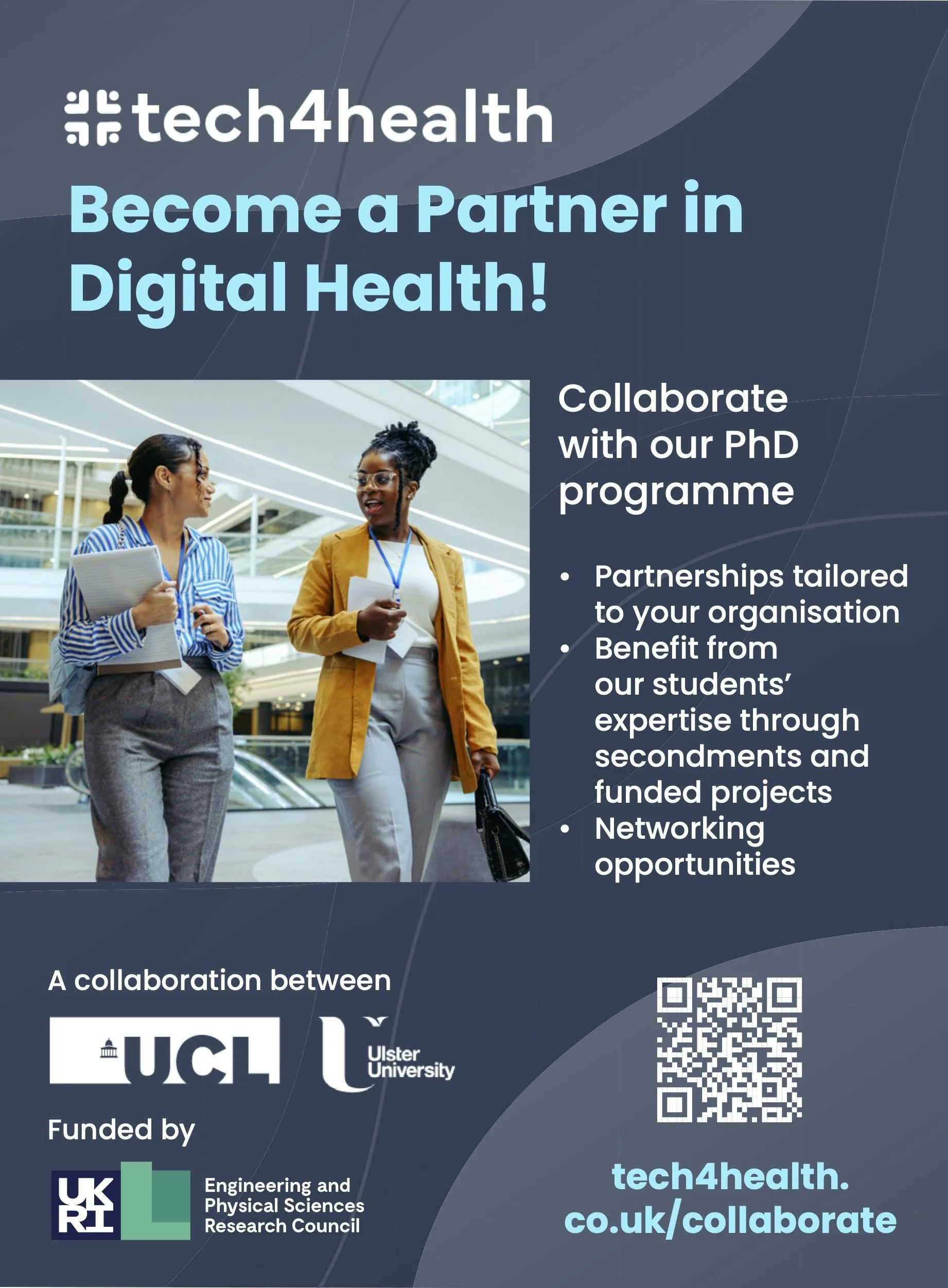
Collaborate with tech4health
The Centre for Doctoral Training (CDT) in Digital Health Technologies is a collaboration between UCL and Ulster University, funded by the Engineering and Physical Sciences Research Council (EPSRC). The centre aims to recruit 80 students up until 2032, providing a 4 year PhD programme with integrated multidisciplinary training for the next generation of researchers and innovators in digital health at home, in hospitals, and in the community.
Students recruited through the CDT will all have an engineering, computational, or physical sciences background and the aim of the programme of study is to develop digital health technologies that have a positive impact on patients and society. The work of the centre intersects across 4 themes :
Diagnostic and Prognostic Indications
Treatment and Care Optimization
Disease tracking, Surveillance and Modelling
Security, Interoperability and Sharing
How can my organisation collaborate with the tech4health?
Every organisation will have unique strengths - we therefore offer the opportunity for partnership arrangements to align with your organisation’s expertise and capability. If you are interested in working with the CDT, please contact us via hello@tech4health.co.uk.
-
Can you contribute to the CDT’s evolving training programme?
-
CDT students must undertake a 3 month secondments with an industrial or clinical partner. Can your organisation offer work-based experience to a CDT student?
-
The CDT wants the training programme to be developed in line with industry needs and therefore welcomes external stakeholder involvement at sub-committee level.
-
The CDT will host a range of events across the academic calendar. Please get in touch if you would like to be on our mailing list!
-
Can your organisation invest in the next generation of healthcare innovators by sponsoring a PhD?
Do you have a research question which could drive a PhD proposal/s?
Sponsorship offers stakeholders the opportunity to develop research projects, ensuring research aligns with industry need, in conjunction with university supervisors.
Monetary contributions not only provide financial support to a PhD candidate during the period of research but will establish fantastic connections with future talent.


